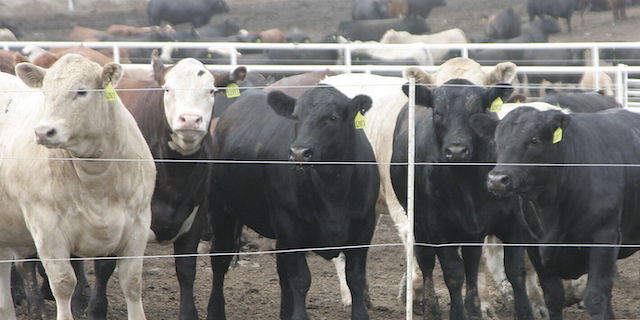Private Treaty February 2025
Pacific Cattle Angus, Sim-Angus, and Simmental range-raised production fall bulls available by PRIVATE TREATY FEBRUARY 2025 Carl Wisse • carl@pacificcattle.com www.pacificcattle.com • 509-539-6850 • Eltopia, WA
Published 10:14 am Friday, February 7, 2025

OLYMPIA — A House Democrat said lawmakers need to know how much methane dairies and feedlots release to make sound policy, inspiring a Republican to suggest taxing sports fans for the methane given off by large crowds.
Rep. Lisa Parshley, D-Olympia, told the Environment and Energy Committee on Thursday legislators should know agriculture’s contribution to climate change.
“We’re not going to ask farms to put things around the cows to measure how much they’re emitting,” she said. “We’re going to start simply to see if there is an actual problem.”
Republicans suggested the bill was a forerunner to taxing methane from cattle. Rep. Mark Klicker, R-Walla Walla, proposed taxing methane from humans.
“I can guarantee you somewhere in this room there is methane being produced,” he said.
Klicker went on to float the idea of taxing fans who attend professional football, baseball, hockey and soccer events in Seattle. “I’m serious. It might sound funny,” he said.
The Washington Department of Ecology already estimates that the digestive systems of ruminant animals, such as cattle, sheep and goats, emit about 3% of the state’s greenhouse gases.
Parshley’s legislation, House Bill 1630, would require the state’s 10 feedlots and 257 dairies to report their methane emissions. Dairies and feedlots would have to pay Ecology a $429 reporting fee.
Farm groups recruited experts to testify remotely that it wasn’t possible to pinpoint methane emissions from a particular operation. There are too many variables and too many gaps in the research, Texas A&M professor of biological and agricultural engineering Brent Auvermann said.
“I’m not sure we’re there yet. In fact, I’m fairly sure that we’re not,” he said.
Methane emissions from cows vary, University of Nebraska cattle dietician Galen Erickson said. Researchers are working on cattle diets that reduce emissions, he said.
“I believe we will cut methane cattle naturally produce by 50%, that’s my opinion based on research, in the next decade,” he said.
Washington dairies are responding to market demands to cut methane emissions, Washington State Dairy Federation policy director Jay Gordon said.
“Our customers — folks like Starbucks, Nestle, Walmart, Costco — are demanding that of us, and we’re trying to keep those good customers,” he said.
Washington’s greenhouse gas inventory doesn’t measure methane from humans. European researchers in 2022 calculated humans exhale and release through digestive processes 332,000 tons of methane a year.
Methane from humans contributes little to global emissions now, but with an increasing global population, it may have a bigger share of the carbon budget in the future, especially in cities without agriculture, the European researchers concluded.